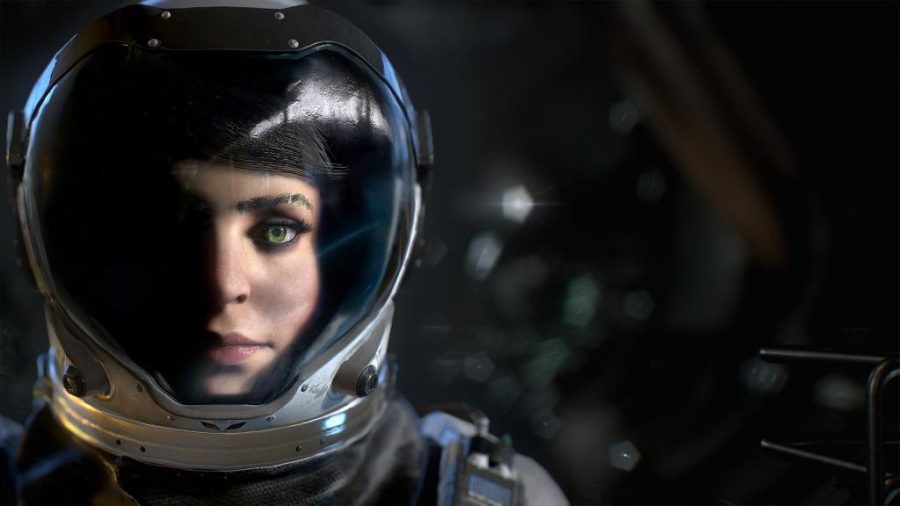What makes you Human?
The Turing Test Review 3/5 Xbox One, Microsoft Windows, $20
September 21, 2016
Are you a robot? Obviously not, is probably your initial reaction. There’s proof – pictures of you, videos and audio of you throughout your life. So you’re not made from code. But if you were, do you think you could understand how humans worked? Not biologically, but psychologically. Do characteristics like humility or sacrifice make what we are human? In The Turing Test, the answers to these questions get a little messy.
In this first-player puzzle adventure, you play as Ava Turing, an astronaut on one of Jupiter’s moons, Europa. Your main goal is to find the crew that has disappeared deep within the base. You, alongside the base’s artificial intelligence (AI), Tom, solve Portal-esque puzzles as you journey deeper into the base, and closer to figuring out the mystery of what has happened to your crew.
Sadly, I was expecting more out of this game than what I received. I was expecting a philosophical awakening, questioning of morality and mortality, where philosophical science fiction met puzzle-level organization that racked my brain and made it a game to remember. What I got was something along those lines, but shorter and easier, less retainable.
Some parts of gameplay were more repetitive than others: sequences in-between puzzles, the sort-of spoiling the end before the ending, and how some of the puzzles seemed exactly the same. Highlights featured easter egg rooms and mentioning popular psychological experiments relating to AI throughout human history. My favorite was the repeated mentioning and introduction of the Chinese room thought experiment, which questions the difference between an AI “knowing” how humans react to something, or whether they just “simulate” how they know humans are supposed to act.
Relying mostly on audio to tell the plot, The Turing Test’s voice acting was really the star of this game. Being primarily a puzzle game, most of the audio comes from designated audio logs of the crew you find around the base. It’s all incredibly realistic, which makes this game, starring you being very alone in space, a little more horror-oriented than might have seemed at first glance.
This is the kind of game I’d consider worth it on sale, half off when you’re in the mood to sit down and escape for awhile. The graphics will pull you in. The puzzles will distract you from the plot just long enough to not figure out the ending within the first half of gameplay. And the voice acting’s reality and drama will make you feel as if your decisions really could determine the fate of humanity.
Video games like this are interesting in that they seem to be searching for a reaction, a common result. As figurative as their concepts may be – artificial intelligence may be nearing, but it certainly isn’t spotless yet – games like The Turing Test show that their consequences can still hold major dilemmas for mankind.




















